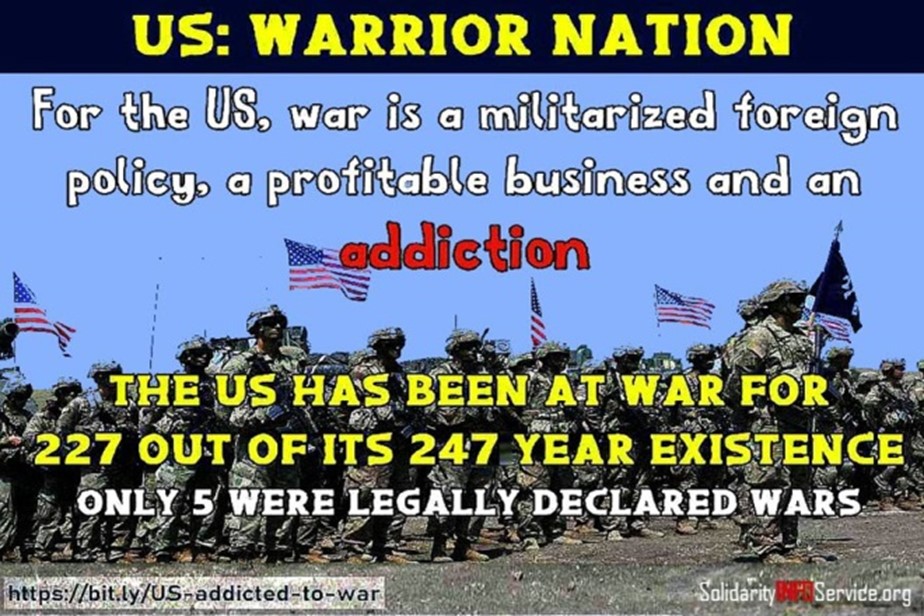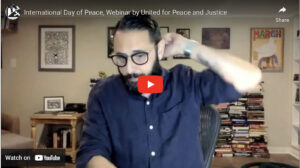by Michael Eisenscher, National Coordinator Emeritus, U.S. Labor Against the War
During the last year-and-a-half, the war in Ukraine has commanded the lion’s share of the attention of the U.S. and international antiwar movement – although that conflict has also provoked a splintered response and mixed messages from antiwar activists.
The conflicts in the Middle East and North Africa have been eclipsed by the Russia-Ukraine-U.S.-NATO war. While we focused on Europe, the U.S. has continued to plant the seeds of future conflicts in the Middle East and is escalating its confrontation with China.
On September 13th, al-Monitor reported that the United States and Bahrain had just signed a new security and economic agreement. It includes a provision for the United States to “help deter and confront external aggression in the event of an attack” on Bahrain.
Jared Szuba reported, “Biden administration officials hope the deal will be the first in a series with Middle Eastern nations as the U.S. seeks to maintain its influence in the region following major military withdrawals as it competes with China on the global stage.”
The agreement falls short of the Article 5-style defense guarantees long sought by Gulf oil petro-states, and thus does not require Congressional approval.
The security agreement is likely to serve as a model for Washington’s security commitments to other Middle East autocracies. It will expand the number of places in the region that could serve as trigger points for US military intervention. It is another provocative signal to Iran that the U.S. continues to consider the region strategically vital to American interests (it has lots of oil), and its determination to defend its claim to be the world’s primary (if not only) global hegemon.
As if to put a fine point on that message, the same week Elizabeth Hagedorn, also with Al-Monitor, reported the U.S. would reduce military aid to Egypt by $85 million as expression of “concern” about the human rights violations of General Sisi’s repressive government. This is less than Washington held back from Cairo’s aid package in each of the two previous years. Human rights organizations had called for it to withhold the entire $320 million in military doled out to Egypt annually as part of a foreign aid package totaling $1.3 billion, second in the region only to Israel.
Instead of putting the withheld military funds into humanitarian aid to the people of Yemen, Syria, Lebanon, Libya, Morocco, Palestine, Afghanistan, or any number of other humanitarian crises abroad, not to mention more assistance to the victims of US climate catastrophes in the U.S.
The security agreement with Bahrain is emblematic of U.S. objectives. It portends what is to come – more flashpoints and military conflicts to protect the interests of the fossil fuel cartel, the military-industrial complex, and the neoliberal Congressional majority, White House and other political interests that dictate American foreign policy and are beneficiaries of its political and financial largess.
This is more convincing evidence of the need for a large, united active peace and global justice movement. The question is whether we are up to the challenge!



